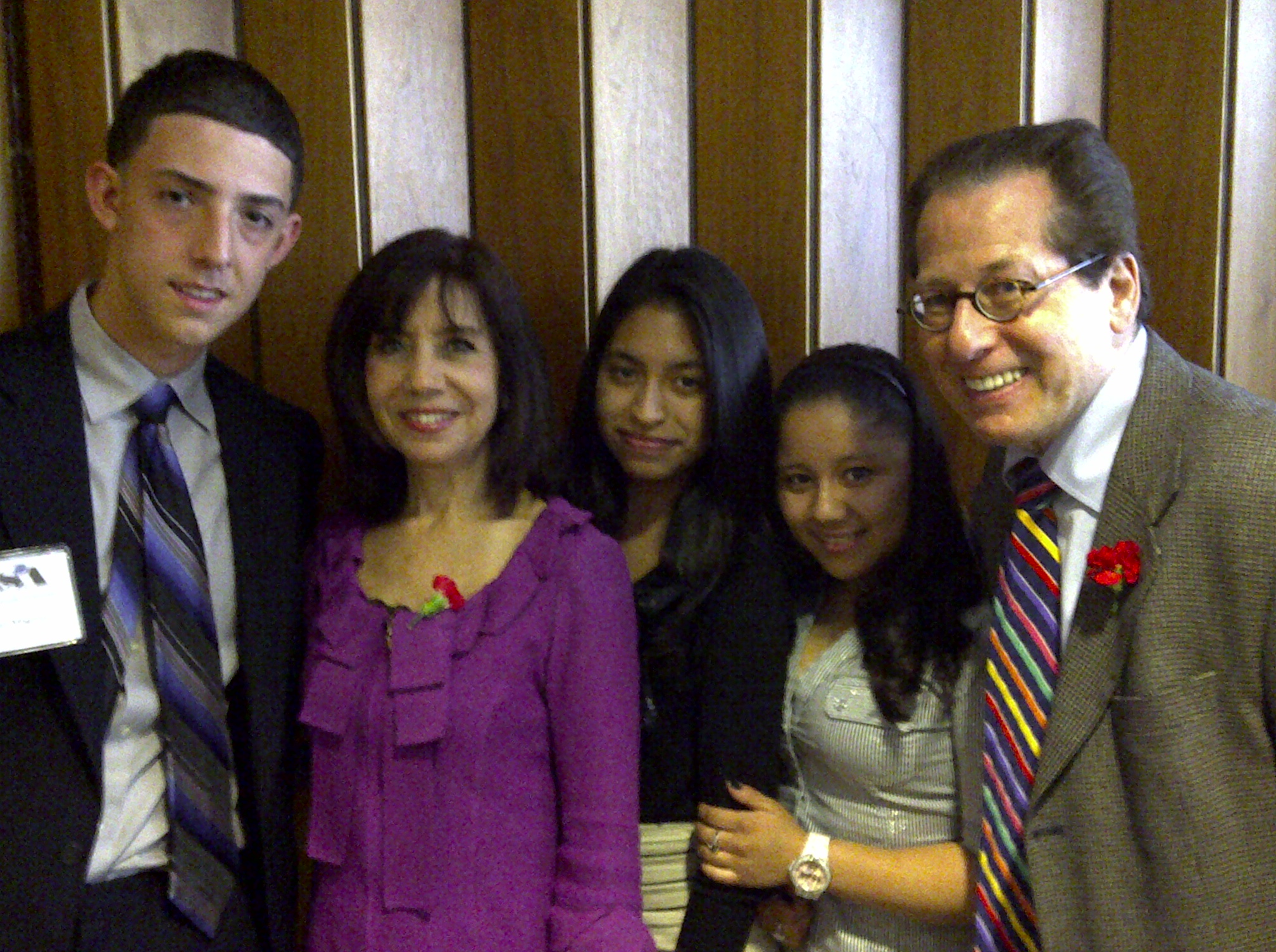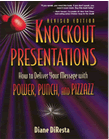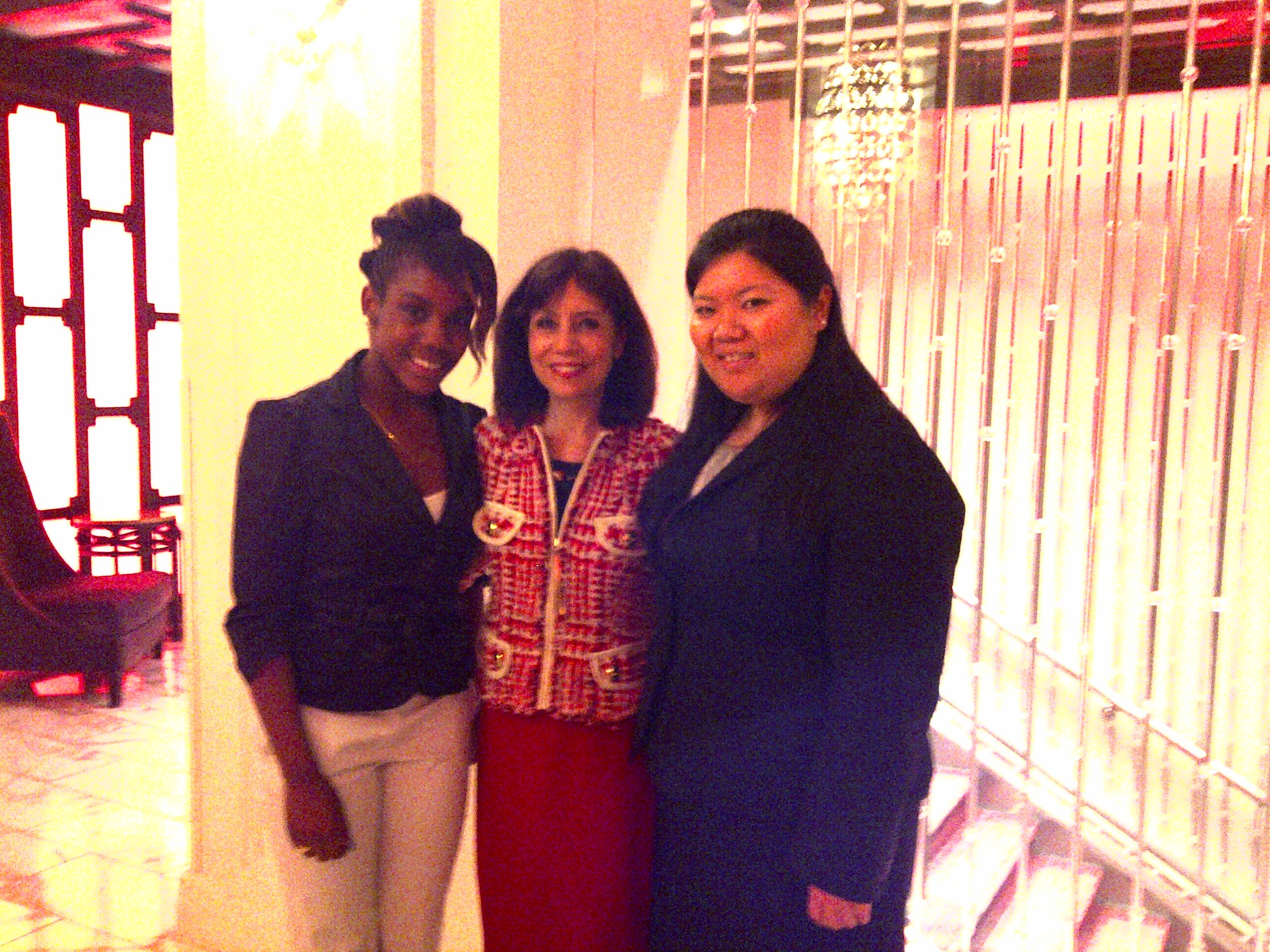Murphy's Law will happen during one of your presentations. Guaranteed. The challenge is what to do about it. The pros don't get rattled by mishaps. They plan for them. Confident speakers know when accidents happen - they can handle them. That's because they anticipate and plan a recovery strategy. Anyone can deliver a good presentation when things are going smoothly. But when disaster strikes, the great public speakers rise to the occasion and put their best public speaking foot forward.
Fear of Public Speaking Series: Visualize Success
Visualization is the key to effective public speaking. You have the power to create your desired speaking outcome. Why would anyone choose fear? Choose confidence. Visualize success. Learn how.
Fear of Public Speaking Series: Change Your Thinking
Think positive! Fear is "stinkin' thinkin'. You have more power than you think. And it's all in your mind. Confident Public speaking is a state of mind.
Fear of Public Speaking Series: Focus on the Breath
Public speaking doesn't have to evoke fear. Breath deeply. When we're in a fear state we tend to hold our breath. Psychologist Roger Wolger once said something to the effect of " Anxiety is an interruption in respiration." To work through fear, breathe deeply. Focus on the breath.
Fear of Public Speaking Series: Prepare and Rehearse
This may be common sense, but most people don't prepare and rehearse as much as they should. You can minimize fear simply by rehearsing. Practice your presentations to be a confident public speaker.
What I Learned About Presentations from Starbucks
 This morning I stopped in a Starbucks on W43 Street and Avenue of the Americas in New York City. I was expecting the usual long line that doesn't move. Instead, we moved quickly and the server asked for my order before I approached the cashier. Then she gave a coffee to the man in front of me and told me someone was delivering my tea right now. That was pleasant! Then I sat down and watched the baristas behind the counter. They called each person by name-"Ron, here's your grande. Adam, you have a latte. They actually wrote the person's name on the cup. It was a good presentation and that prompted me to compliment them on their personal service. This was the first time I had seen this approach at Starbucks.
It made me wonder what it would be like if our presentations were that personal. What if we spoke directly to individuals and made them feel special? Well, we can. It's called engagement. Public speaking is personal. Simply by doing some homework to get to know the audience members in advance we can tailor the message to include their individual challenges and experiences. Arriving early can accomplish the same thing. When I talk to audience members as they enter the room, I hear their stories and situations. I can then refer to them by name. For example, "When I was speaking to Laura this morning she told me..." Steve, you'll appreciate this story. I know you've been there."
This morning I stopped in a Starbucks on W43 Street and Avenue of the Americas in New York City. I was expecting the usual long line that doesn't move. Instead, we moved quickly and the server asked for my order before I approached the cashier. Then she gave a coffee to the man in front of me and told me someone was delivering my tea right now. That was pleasant! Then I sat down and watched the baristas behind the counter. They called each person by name-"Ron, here's your grande. Adam, you have a latte. They actually wrote the person's name on the cup. It was a good presentation and that prompted me to compliment them on their personal service. This was the first time I had seen this approach at Starbucks.
It made me wonder what it would be like if our presentations were that personal. What if we spoke directly to individuals and made them feel special? Well, we can. It's called engagement. Public speaking is personal. Simply by doing some homework to get to know the audience members in advance we can tailor the message to include their individual challenges and experiences. Arriving early can accomplish the same thing. When I talk to audience members as they enter the room, I hear their stories and situations. I can then refer to them by name. For example, "When I was speaking to Laura this morning she told me..." Steve, you'll appreciate this story. I know you've been there."
Nothing impacts an audience like a personal message just for them. It's not difficult to do. It engages them, creates a bond, and makes them feel special.
PowerPoint is Ruining Our Love Lives
 I knew we were PowerPointed out but I didn't realize it was this bad. A recent survey released by Sliderocket indicated that 24% of people polled for a new study said they'd rather give up having sex tonight than have to sit through yet another PowerPoint presentation tomorrow. 32% of those polled have fallen asleep during a presentation, 20% dozed off so often that they've lost count. It seems like PowerPoint may quickly become the new birth control. Public speakers unite! Either throw away your PowerPoint or learn to do it better.
As a speaking strategist, I've discovered that too many speakers allow the slides to lead them by the nose. It's time to take charge. The key word in Visual Aid is AID! YOU are the visual.
I knew we were PowerPointed out but I didn't realize it was this bad. A recent survey released by Sliderocket indicated that 24% of people polled for a new study said they'd rather give up having sex tonight than have to sit through yet another PowerPoint presentation tomorrow. 32% of those polled have fallen asleep during a presentation, 20% dozed off so often that they've lost count. It seems like PowerPoint may quickly become the new birth control. Public speakers unite! Either throw away your PowerPoint or learn to do it better.
As a speaking strategist, I've discovered that too many speakers allow the slides to lead them by the nose. It's time to take charge. The key word in Visual Aid is AID! YOU are the visual.
Here are some of the most common mistakes I see:
- Reading the slides. I can read as well as you can. If you read word-for-word, you'll lose credibility. Experts use the slide as a backdrop and add value from their knowledge base.
- Talking and changing the slides. Again, are you leading the presentation or is it leading you? Come to the end of a sentence, pause, advance the slide, and then introduce your next point.
- No transitions. This will make you sound choppy. Write out your transitions in advance. They can be statements or questions.
- Too much text. Get rid of the sentences. Substitute photos, pictures, charts, graphs, cartoons, symbol, and key words or phrases.
- Busy, cluttered slides. Too much content is distracting. Aim for lots of white space.
- Small font. If people have to squint, the font is too small. For titles use 36 points and for bullets use 32 points for maximum readability.
I'll bet the number one reason people are bored with PowerPoint is they're not engaged. The speaker is a talking head. You can be more effective when you use PowerPoint to engage the audience. Ask a question and then flash the correct answer. Tell a story and then flash a picture. Create a dialogue, engage people, and let PowerPoint fade into the background. When the speaker takes center stage that's when the magic happens.
http://www.mailboto9.com/cgi-bin/uls/uls.cgi?ako=sXO3sXkvXDjDkXDsOYvXjXX
15 Tips to Conquer Fear of Public Speaking
 July is Freedom from Fear of Speaking Month. Summer is a good time to take a public speaking class, get a coach and knockout fear of speaking. Here are 15 tips to help you become a confident public speaker.
July is Freedom from Fear of Speaking Month. Summer is a good time to take a public speaking class, get a coach and knockout fear of speaking. Here are 15 tips to help you become a confident public speaker.
- Get over yourself Fear of Speaking - Nervousness is being self-centered. It's not about you-it's about them. The audience wants you to succeed.
- Focus on the breath - Breathe through the diaphragm of belly. Take 5-10 deep cleansing breaths.
- Prepare and Rehearse - Practice out loud and time your speech. Videotape yourself. You don't look as nervous as you feel.
- Set an anchor - Remember a time when you were at the top of your game. Get the feeling. Press your index finger and thumb together and anchor it. Press your fingers together right before you speak.
- Affirm your success - Overwrite negative programming by writing positive statements and say them to yourself. "I'm confident." "I can do this."
- Arrive early - Mingle with others and you'll feel like you have friends in the audience.
- Visualize your outcome - Create the outcome you want in your mind. Imagine every step of your presentation until the outcome is exactly the way you want it.
- Transfer your nervousness - Squeeze a small foam ball in your hand.
- Make contact with a friend - Look at a friendly face and smile. You'll feel you are supported.
- Plan a recovery strategy - Imagine your worst scenario and plan how you'll handle it in advance. Humor works great.
- Take time to pause - Stop for 3 beats of silence at the end of as sentence. You'll be able to catch your breath and think.
- Make your fear smaller - Imagine your fear as a fiery ball. In your mind's eye, shrink it and move it far away.
- Express your passion - Get excited and involved in your message or story and pretty soon you'll forget yourself.
- Meditate - Ten minutes of meditation will calm and focus your mind.
- Work the room - Release energy through moving to different parts of the room and using gestures. You'll feel energized.
What are your favorite tips for conquering fear of public speaking?
Casey Anthony: Persuasive Presentations and Getting Away with Murder
 Watching a national murder trial is a lesson in the power of persuasive public speaking.The verdict for Casey Anthony was NOT GUILTY. I was shocked. I didn't see that coming. Eighty per cent of people who were polled thought the mother had killed her child and that she got away with murder. Yet, she walked away a free woman.
How was the defense team able to win the case?
Let's look at this from the perspective of persuasive speaking.
In every trial, both the prosecution and defense need to establish a relationship with the jury. And every public speaker must have a relationship with the audience.
But that's not enough.
Watching a national murder trial is a lesson in the power of persuasive public speaking.The verdict for Casey Anthony was NOT GUILTY. I was shocked. I didn't see that coming. Eighty per cent of people who were polled thought the mother had killed her child and that she got away with murder. Yet, she walked away a free woman.
How was the defense team able to win the case?
Let's look at this from the perspective of persuasive speaking.
In every trial, both the prosecution and defense need to establish a relationship with the jury. And every public speaker must have a relationship with the audience.
But that's not enough.
To win the case, the defense must cast doubt in the minds of the jury. The prosecution must be able to build a convincing case. In the Casey Anthony case, the dense attorney failed to paint Casey Anthony as a sympathetic figure but he was successful at casting doubt. The prosecution had a good case but why didn't they win? There was enough circumstantial evidence. Was it that the jury needed DNA evidence to convict her? Was the single hair in the trunk of the car not good enough?
The failure to persuade came down to strategy. There was enough circumstantial evidence to connect the dots. What was not clear was whether the death was planned or an accident that was covered up. Clearly, the mother was involved. So why didn't the jury convict? Because the prosecution aimed too high. They wanted the death penalty for first degree murder. And because of this the jury couldn't convict the defendant. They didn't feel there was enough evidence. Had the prosecution aimed for manslaughter without a death penalty they would have had a greater chance of winning.
Here's the lesson for public speakers. When it comes to persuasion, the higher the stakes, the stronger your evidence must be. But it goes beyond building a strong logical case. You must take into account the emotions of and consequences on the audience you want to persuade. In business, you may try to persuade employees to take a pay cut. But if they believe it's a step that will lead to layoffs, you'll never persuade them. The consequences are too great. The speaker would need an airtight case and flawless evidence in order to get agreement. How often do people try to get buy-in thinking they have all the right reasons and evidence only to be shot down? Without considering the emotional impact, responsibility and consequences to the audience, chances are they'll push back.
To influence and persuade, public speakers must go beyond the evidence and adopt the right strategy. The Casey Anthony jury didn't want the death of the defendant on their conscience as long as there was a "reasonable doubt". The lesson for persuasive speakers is consider the stakes-and then plan your strategy. What do you think?
Political Presentations: Is There a Double Standard for Women?
 First there was Sarah Palin. I don't have to review the mistakes she made. They're burned in our brains because she was skewered by the media and the focus of a comedy bit on Saturday Night Live. Enter Michele Bachmann. Her recent flub about the actor John Wayne being from her hometown of Waterloo, Iowa set off the media because it was actually serial killer, John Wayne Gacey who hails from Waterloo. Oops. Yes, politicians must check their facts before speaking to the media and when they're wrong they'll have to answer for it. But is the scrutiny of Sarah Palin and Michele Bachmann due to their party affiliation? I say no. Hillary Clinton was not spared the media rod. She was criticized for her changing hair styles, her shrill voice, her command and control approach and her outspoken comments. Yet, these women pale compared to the gaffes of Joe Biden. But he seems to get a pass. The media does a quick "boys will be boys" chuckle and moves on to the next story. Like teflon, Joe's many public speaking faux pas including the F word don't seem to stick.Last week, Chris Wallace of Fox News Sunday asked Michele, "Are you a flake?" Her response was, "Well, I think that would be insulting, to say something like that, because I'm a serious person." Can you imagine asking a male candidate if he was a flake? He then went on to remind her "that now that you are in the spotlight in a way that you weren't before that you have to be careful and not say what some regard as flaky things." How condescending but not surprising. The experience of political women mirrors the reality of corporate senior women who are not taken as seriously as their male counterparts. Tired of bumping their heads on the glass ceiling many corporate women left to become entrepreneurs and fueled the rapid growth of women owned businesses. But what is the answer for female political leaders? Are they supposed to go off and form their own governments? We need the diversity in both the private and public sector. Women have led England, the Philippines, Nicaragua, Pakistan. It's 2011 and we still don't have a female American president.
Is there a double standard for women candidates? Do women have to be perfect presenters? What do you think?
First there was Sarah Palin. I don't have to review the mistakes she made. They're burned in our brains because she was skewered by the media and the focus of a comedy bit on Saturday Night Live. Enter Michele Bachmann. Her recent flub about the actor John Wayne being from her hometown of Waterloo, Iowa set off the media because it was actually serial killer, John Wayne Gacey who hails from Waterloo. Oops. Yes, politicians must check their facts before speaking to the media and when they're wrong they'll have to answer for it. But is the scrutiny of Sarah Palin and Michele Bachmann due to their party affiliation? I say no. Hillary Clinton was not spared the media rod. She was criticized for her changing hair styles, her shrill voice, her command and control approach and her outspoken comments. Yet, these women pale compared to the gaffes of Joe Biden. But he seems to get a pass. The media does a quick "boys will be boys" chuckle and moves on to the next story. Like teflon, Joe's many public speaking faux pas including the F word don't seem to stick.Last week, Chris Wallace of Fox News Sunday asked Michele, "Are you a flake?" Her response was, "Well, I think that would be insulting, to say something like that, because I'm a serious person." Can you imagine asking a male candidate if he was a flake? He then went on to remind her "that now that you are in the spotlight in a way that you weren't before that you have to be careful and not say what some regard as flaky things." How condescending but not surprising. The experience of political women mirrors the reality of corporate senior women who are not taken as seriously as their male counterparts. Tired of bumping their heads on the glass ceiling many corporate women left to become entrepreneurs and fueled the rapid growth of women owned businesses. But what is the answer for female political leaders? Are they supposed to go off and form their own governments? We need the diversity in both the private and public sector. Women have led England, the Philippines, Nicaragua, Pakistan. It's 2011 and we still don't have a female American president.
Is there a double standard for women candidates? Do women have to be perfect presenters? What do you think?
Do You Have a Public Speaking Anchor?
Imagine you're sailing. You find a spot where you want to go snorkeling. You drop an anchor and you dive off the boat. You enjoy your underwater adventure as you experience all kinds of marine life. You know when you're ready, the boat will be waiting for you. But what if there were no anchor? The boat would drift away and you'd be left on your own to tread water. It's no different with public speaking. Many people fear speaking because they don't know how to anchor themselves. As their presentation drifts along they become more nervous. In this video, you'll learn about simple public speaking anchors you can use to start speaking with confidence.
Students Face Their Public Speaking Fears and Win
Press Relase
For Immediate Release
Nancy Mui, a college senior, and Sequenza Williams, a high school senior proved they can compete in the adult arena. Both students were winners of the prestigious mentoring program sponsored by Financial Women’s Association (www.fwa.org). The program matches FWA mentors to students. After excelling in the mentorship program, they faced their final hurdle—the acceptance speech. Each student was required to give a three minute speech at the FWA Annual Dinner before an audience of over 200 adults including Fortune 500 financial companies and sponsors. Recognizing that public speaking is one of the top fears, the FWA brought in Diane DiResta, author of Knockout Presentations and CEO of DiResta Communications, Inc to prepare them for the final event. Over several sessions Ms. DiResta coached them on developing the message, delivering the speech with confidence and in three minutes. They arrived early for a final dress rehearsal in the ballroom where they practiced walking on stage and using the microphone.
Both Nancy and Sequenza approached the platform with poise and gave a knockout presentation. Sequenza shared her growth as a high school senior and personally thanked her mentor by asking for her to stand and accept applause. Sequenza will be attending college in Georgia. Nancy provided several moments of humor and talked about her passion for mentoring other students. She has already been offered her first job beginning this Fall.
“This speech was a milestone for both students,
3 Interview Questions You Must Master
 Here are the facts:More people are interviewing for jobs.
Hiring decisions are based on 60% chemistry and 40% skills.
Your presentation skills are critical for interviewing success.
Here are the facts:More people are interviewing for jobs.
Hiring decisions are based on 60% chemistry and 40% skills.
Your presentation skills are critical for interviewing success.
And there are 3 questions you must master. When I coach C-level executives in transition we begin with these 3 potent questions:
- Tell me about yourself
- Why did you leave your job?
- Why should I hire you?
Question number 1 is a selling opportunity. Lead with your 3 strengths or elevator speech. Don't start with your job history. Briefly highlight your job history and accomplishments. Close the loop by saying, "And what I'm looking to do next is..."
Question number 2 must be clear, brief, and stated with confidence. If you give too many details or seem hesitant, the interviewer will seize the moment and drill down. Don't raise a red flag by defending your position. State the facts. "There was a restructuring and my job was eliminated."
Question number 3 is a final opportunity to sell your knowledge, skills, and abilities. Listen to their needs and demonstrate how your skills match the job description.
An interview is public speaking. These 3 questions are the core of every interview. Get ready to prepare, polish and present.
Speakers University-National Speakers Association
 On May 20th, the NYC chapter of National Speakers Association presented a full day Speakers University held at the Fashion Institute of Technology. The success of the event was due in large part to the President Don Gabor, the Speakers U chair, Bob Frare, and many others on the committee.
On May 20th, the NYC chapter of National Speakers Association presented a full day Speakers University held at the Fashion Institute of Technology. The success of the event was due in large part to the President Don Gabor, the Speakers U chair, Bob Frare, and many others on the committee.
My presentation was Presentations for Your Career at Work and covered interviewing, voicemail, meetings, and delivering informational and persuasive presentations. Three high school student entrepreneurs were awarded a scholarship for the day. The morning began with the opening keynote, Kick Your Own Butt, by Pegine Ecchevarria. Ed Robinson gave the closing keynote, From Fighting the Storm to Dancing in the Rain. Both presenters inspired the crowd and knocked it out of the box! A sampling of some of the high content concurrent sessions included Moving from Free to Fee by Rochelle Rice, How to Deliver a High Impact Webinar-Garrett Terhune, and Becoming a Successful Keynoter by Ron Karr. The day ended with a silent auction with services donated by some of the top speakers.
I've been a member of National Speakers Association since 1991 and it's helped me build my business, develop new skills, and brought me many new friends. To attend as a guest visit http:// www.nsa-nyc.org
Can A Good Resume Trump a Weak Presentation?
 Recently, I had a conversation with one of my C-level clients. He had referred one of his young associates to work with me on building confidence. This bright, hardworking associate didn't show up powerfully at meetings with clients and projected a weak presentation. Although knowledgeable about the research, the associate was soft spoken and simply reported facts from the PowerPoint data. The goal was to eventually lead the meetings.
After the coaching program, there was a change in the presentation. The associate was more confident, owned the room, and spoke with authority adding valuable comments and explanations to the charts. My client was pleased with the results and confided in me that initially, he didn't think the job interview would go very long.
Recently, I had a conversation with one of my C-level clients. He had referred one of his young associates to work with me on building confidence. This bright, hardworking associate didn't show up powerfully at meetings with clients and projected a weak presentation. Although knowledgeable about the research, the associate was soft spoken and simply reported facts from the PowerPoint data. The goal was to eventually lead the meetings.
After the coaching program, there was a change in the presentation. The associate was more confident, owned the room, and spoke with authority adding valuable comments and explanations to the charts. My client was pleased with the results and confided in me that initially, he didn't think the job interview would go very long.
He described the candidate as having a weak handshake and too soft spoken. Within seconds of meeting, he thought to himself, "No way am I making a job offer." But he did the polite thing and began asking questions. The more he probed the better the applicant sounded. There was substance beneath that lackluster presence. The references checked out as he learned that this candidate accomplished 50% more work than anyone else. He had discovered a diamond in the rough. To his credit he made an offer. Realizing this was a good quality person, he knew some coaching would enhance the presentation skills.
This associate was lucky. The manager was astute and patient enough to dig beneath the surface. But this is the exception, not the rule. Most job candidates are dismissed early on because of poor public speaking skills and an inability to present themselves. And many interviewers are not skilled themselves in interviewing skills.
It takes seven seconds or less to make a first impression. You can look good on paper. But if you can't pass the handshake test, you may not get a second chance.
Make a Promise to Be a Better Public Speaker
 May 4th is Make a Promise Day which was started by Matthew Cossolotto. Why make a promise? Because a promise is more powerful than a goal. Quick! How many New Year's Resolutions have you already broken? When you promise to be a better public speaker, there is an energy and commitment that drives you to action. My military father taught me to never break a promise. When you gave someone your word, that was sacred.
You may keep your promise to others; but what about yourself? I recently made a promise to give up chocolate for one month. It was hard, but I would never have done it if I hadn't made a promise. A promise is putting a stake in the ground. It's drawing a line in the sand. You can become a better public speaker right now and the first step begins with a promise.
May 4th is Make a Promise Day which was started by Matthew Cossolotto. Why make a promise? Because a promise is more powerful than a goal. Quick! How many New Year's Resolutions have you already broken? When you promise to be a better public speaker, there is an energy and commitment that drives you to action. My military father taught me to never break a promise. When you gave someone your word, that was sacred.
You may keep your promise to others; but what about yourself? I recently made a promise to give up chocolate for one month. It was hard, but I would never have done it if I hadn't made a promise. A promise is putting a stake in the ground. It's drawing a line in the sand. You can become a better public speaker right now and the first step begins with a promise.
So, do it. Once you promise, the question becomes how to do it. Here are some ideas for becoming a better public speaker and sharpening your presentation skills.
- Read books and articles.
- Listen to podcasts.
- Attend toastmasters.
- Register for a public speaking class.
- Get a coach.
- Attend National Speakers Association. (NSA-NYC event May 21st)
- Watch top speakers and model their behaviors.
- Volunteer to speak in your community or at work.
- Prepare in advance of your presentation.
- Practice out loud and time yourself. Watch yourself on videotape.
- Simplify your notes. Use bullet points.
- Get an accountability buddy to hold you to your promise.
When you boost your presentation skills and become a better public speaker your life will change. I promise.
The Real Meaning of Words
A while back I blogged about the power of the spoken word. As the Chinese say, “A picture is worth a thousand words." Sometimes words can’t capture the emotion of a picture. When giving a presentation, use pictures and photos to evoke emotion and drive home a point powerfully. LOVE
SORROW
INNOCENCE
DEPARTURE
PAIN
RESPECT
COMPASSION
FRIENDSHIP
PATIENCE
RESCUED
BEST FRIENDS
DIVINE
The Language of Influence
There's an old Jimmy Cliff song, "You can get it if you really want but you must try, try and try, try and try." I would make one change to that. You can get what you really want if you use the right language. Yes, words have power. Words have magnetic attracting power.
So often a speaker has a great product or service but it gets lost in translation. You hear this daily at networking meetings. People drone on with their elevator speeches and nobody understands what they do. Why? Because they're not using the language of influence.
Language can make or break a sale. The right words can uplift or offend. It's all in the language. Marketers know that certain words have selling power. Words like free, guarantee, gain, results, new and improved move people to action.
What if you could change your results simply by tweaking the language? Take a look at this video. Pause it and try to imagine what the woman writes on the sign. And then tell me why you think the final words worked magic.
Face-to-Face or Virtual? Which is Better?
 Communication is 55% visual. Most speakers would agree that face-to-face contact is the most beneficial form of communication. Even on the phone, you're losing the important non-verbals that add richness and meaning to the message.
Yet, when it comes to workplace productivity, virtual may be more effective than on-site. Compared to office employees, tele-workers experience higher job satisfaction, less work-life conflict, fewer interruptions, and less stress from meetings and office politics, according to researchers from the University of Wisconsin, Milwaukee and Northwestern University.
Communication is 55% visual. Most speakers would agree that face-to-face contact is the most beneficial form of communication. Even on the phone, you're losing the important non-verbals that add richness and meaning to the message.
Yet, when it comes to workplace productivity, virtual may be more effective than on-site. Compared to office employees, tele-workers experience higher job satisfaction, less work-life conflict, fewer interruptions, and less stress from meetings and office politics, according to researchers from the University of Wisconsin, Milwaukee and Northwestern University.
The main benefit from the study was work-life balance. Virtual workers had more flexibility and as a result were more productive. Although there were concerns about getting accurate information in the absence of face-to-face communication, this was not the case.
It appears that constant communication is unnecessary. Working virtually enabled employees to focus and get their work completed.
So what are the implications for speakers? Are webinars or online learning methods more effective than face-to-face events? If the purpose is to convey data and facts, online learning can be very effective. But in many cases, it can never replace the relationship, connection, and learning that comes with face-to-face communication.
The role of the speaker is to model, inspire, make meaningful connections to the workplace, stimulate thinking, and facilitate community. High tech does not trump high touch; rather, they are a partnership. Technology is the servant of the speaker. What have you found to be most effective?
One Minute Listening Tip: Listen To Understand
Listening is the foundation of communication. Yet, many people think they are listening when all they're doing is waiting for their turn to speak. True listening starts with an intention. What is your intention when you communicate? Watch this video to learn how to deepen your listening skills and take them to the next level.













